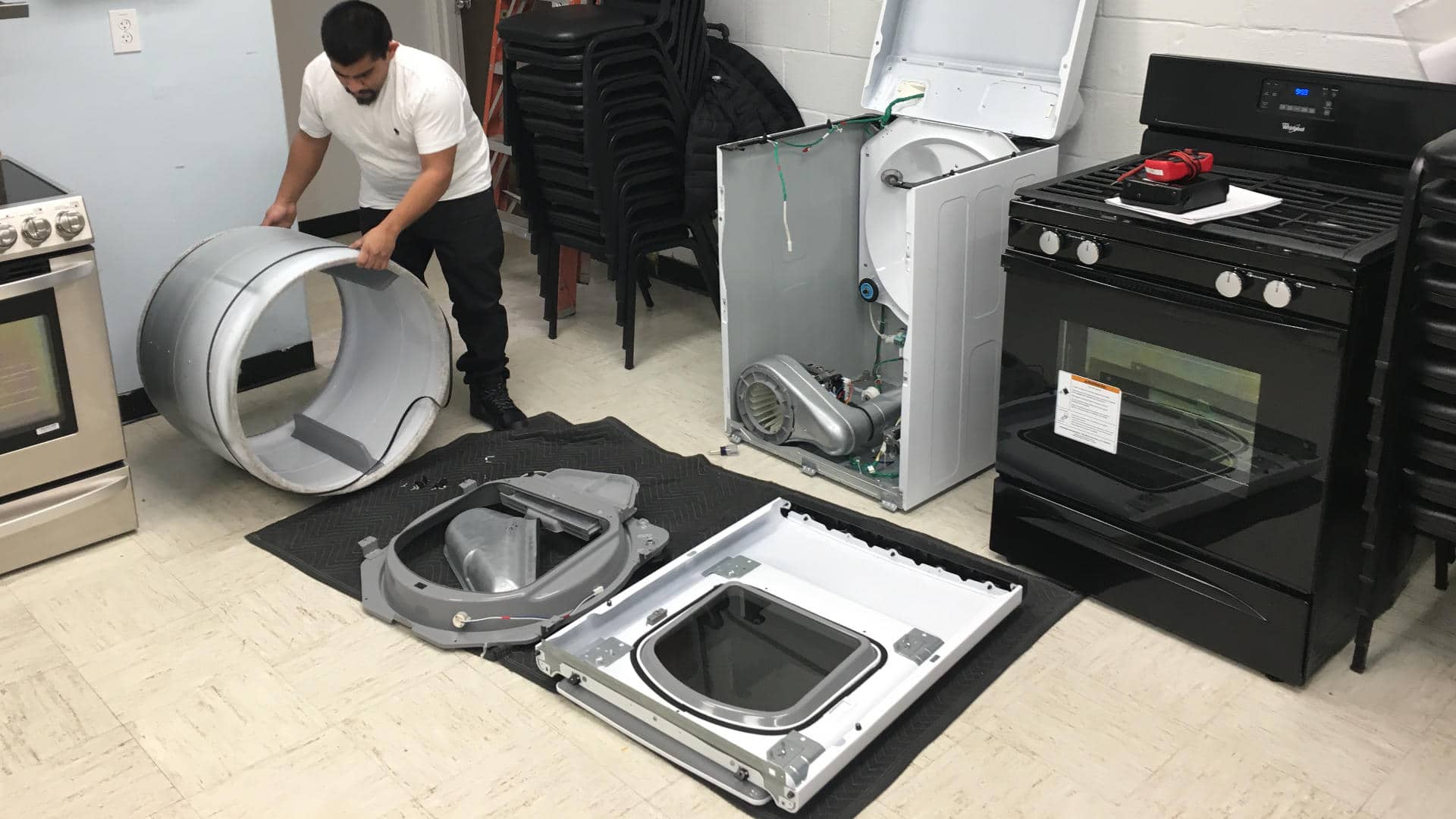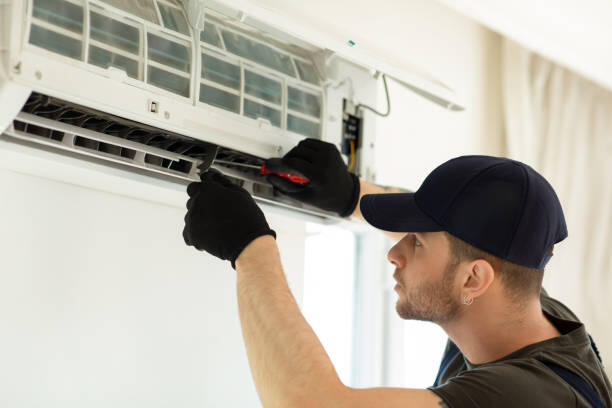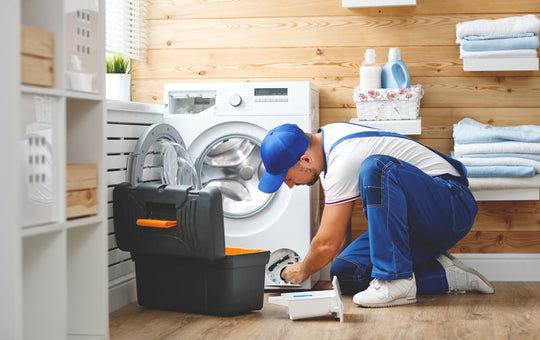Why is Washer Making Strange Noises? Find Solutions Here!
When your washing machine starts producing unusual sounds, it's a clear signal that something might be amiss within its intricate machinery. While some issues can be addressed with DIY solutions, certain unusual washer sounds necessitate the expertise of a professional. In this guide, we'll explore when and how to seek assistance for these auditory anomalies, ensuring a timely and accurate resolution to maintain the optimal functionality of your appliance. From identifying persistent noises to understanding the limitations of DIY interventions, this overview will empower you to make informed decisions when it comes to the health of your washing machine.
Common Causes of Strange Noises: Understanding the Origins of Washer Sounds
Strange noises emanating from your washing machine can be disconcerting, but understanding the common causes behind these sounds is the first step in resolving the issue. One prevalent source of strange washer noises is an unbalanced load. When clothes gather unevenly in the drum, it can lead to thumping or banging sounds during the spin cycle. Regularly check and distribute your laundry evenly to mitigate this problem.
Another culprit is foreign objects caught in the drum or pump. Items like coins or small articles of clothing can create rattling or clanking sounds. Inspect the drum and pump area periodically, removing any debris to maintain a smooth operation.
Worn-out or damaged bearings are also a frequent cause of unusual washer sounds, typically producing a loud, rumbling noise. If you notice this, it's advisable to seek professional assistance to replace the faulty bearings promptly.
Furthermore, loose or damaged belts within the machine can result in screeching or squeaking sounds. Regular inspection of belts for signs of wear and tear can prevent such auditory disturbances.
In conclusion, comprehending the common causes of strange washer noises, such as unbalanced loads, foreign objects, worn bearings, and damaged belts, empowers you to address these issues promptly. Regular maintenance and attention to these factors contribute to a quieter and more efficient washing machine.
Steps to Minimize Washer Noise
Minimizing washer noise is essential for a peaceful laundry experience. Here are practical steps you can take to reduce unwanted sounds from your washing machine:
Load Balancing
Ensure a well-balanced load before starting the washing machine. Unevenly distributed clothes can cause the drum to become imbalanced during the spin cycle, leading to disruptive noises.
Regular Maintenance
Conduct routine checks on your washing machine. Tighten any loose parts, such as nuts and bolts, and inspect for any signs of wear on belts or other components that may contribute to noise.
Leveling Your Washer
Ensure that your washing machine is properly leveled. An uneven surface can lead to vibrations and increased noise. Adjust the machine's feet as needed to achieve balance.
Placement on a Sturdy Surface
Place your washing machine on a solid and stable surface. A shaky or wobbly foundation can amplify vibrations and contribute to excess noise. Consider using anti-vibration pads for added stability.
Check for Foreign Objects
Regularly inspect the drum and pump area for any foreign objects, like loose coins or buttons, that might be causing rattling or clanking sounds. Removing these items can prevent noise issues.
Use Noise-Reducing Mats
Consider placing noise-reducing mats or materials underneath your washing machine. These can absorb vibrations and help minimize sound transmission to the surrounding area.
Professional Inspection
If persistent noise issues persist, seek professional assistance. A technician can diagnose and address underlying problems, such as worn-out bearings or damaged components, ensuring a quieter operation.
By implementing these steps, you can significantly reduce washer noise and create a more serene laundry environment in your home. Regular maintenance and attention to load distribution are key to achieving a quieter and more efficient washing machine.
Diagnostic Tools: Using Your Ears to Pinpoint Issues in Your Washer
Effectively diagnosing issues in your washing machine doesn't always require complex tools; sometimes, your ears can be your most valuable diagnostic tool. Here's how you can use your sense of hearing to pinpoint issues in your washer:
Unusual Sounds During Operation:
Pay close attention to any abnormal sounds your washing machine makes during its various cycles. Grinding, squeaking, or banging noises may indicate underlying problems.
Listening During the Spin Cycle:
Focus on the spin cycle, where many issues become more pronounced. Excessive noise during this phase may suggest imbalances, loose components, or problems with the drum.
Rattling or Clanking:
If you hear rattling or clanking sounds, it's essential to identify their origin. This might involve checking for loose items in the drum, foreign objects caught in the pump, or issues with the drum bearings.
Screeching Sounds:
High-pitched screeches can be indicative of problems with belts or pulleys. Listen for these sounds during the different stages of the wash cycle.
Thumping or Banging
Thumping or banging noises often point to issues with load distribution. Your ears can help you discern whether the load is evenly spread or if adjustments are needed.
Listening for Vibrations
Vibrations can indicate an unbalanced machine or uneven floor. Detecting these vibrations can guide you in leveling the machine or using anti-vibration pads.
Comparing to Normal Sounds
Familiarize yourself with the normal sounds your washing machine makes. Any deviations from this baseline can signal potential issues.
By using your ears as diagnostic tools, you can catch potential problems early and address them before they escalate. Regularly tuning in to the sounds your washing machine produces allows for proactive maintenance, ensuring a smoother and quieter laundry experience.
Professional Help: When and How to Seek Assistance for Unusual Washer Sounds
While your ears can help identify some issues, certain unusual washer sounds may require professional intervention. Here's a guide on when and how to seek assistance for such issues:
Persistent or Worsening Noises
If unusual sounds persist or worsen despite your attempts to diagnose and address them, it's time to seek professional help. Persistent issues may indicate underlying mechanical problems that require expertise.
Lack of Improvement After Basic Troubleshooting
If your attempts to resolve the issue using simple troubleshooting steps, such as load balancing or checking for foreign objects, don't yield positive results, it's advisable to consult a professional.
Identification of Complex Components
If you're unsure about the source of the unusual sound or if it involves complex components like drum bearings, belts, or internal mechanisms, a technician with specialized knowledge can provide accurate diagnosis and solutions.
Warranty Coverage
If your washing machine is still under warranty, reaching out to the manufacturer or an authorized service center is crucial. Attempting to fix the problem independently might void the warranty.
Safety Concerns
Unusual sounds, especially those accompanied by strong odors, smoke, or other signs of malfunction, pose safety concerns. In such cases, it's imperative to stop using the machine immediately and seek professional assistance.
DIY Limitations
If you're uncomfortable or inexperienced with disassembling or repairing complex machinery, it's wise to leave the task to professionals. Attempting to fix intricate issues without the necessary expertise can lead to further damage.
Routine Maintenance Checks
Even if you're not currently experiencing issues, scheduling routine maintenance checks with a professional can help identify potential problems before they escalate. This proactive approach can extend the lifespan of your washing machine.
When seeking professional help, contact reputable appliance repair services or the manufacturer's authorized service providers. Clearly communicate the symptoms, duration of the issue, and any troubleshooting steps you've taken. This information will assist the technician in diagnosing and resolving the problem efficiently. Remember, timely professional intervention can save you from costly repairs and ensure the longevity of your washing machine.






